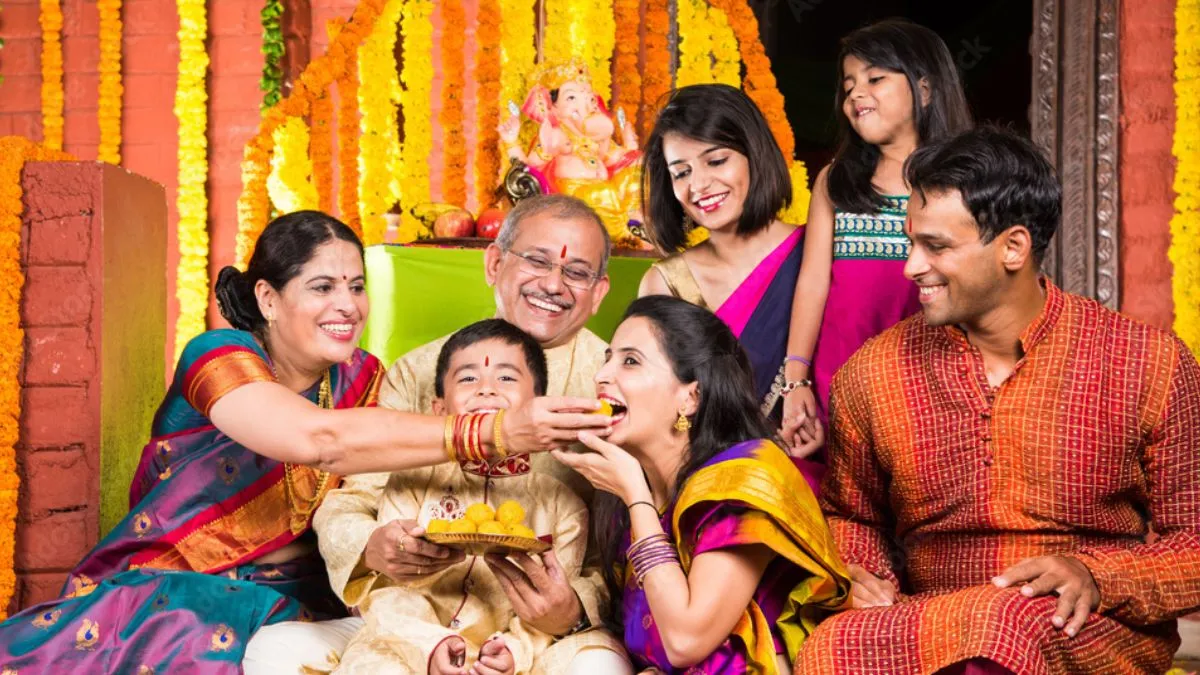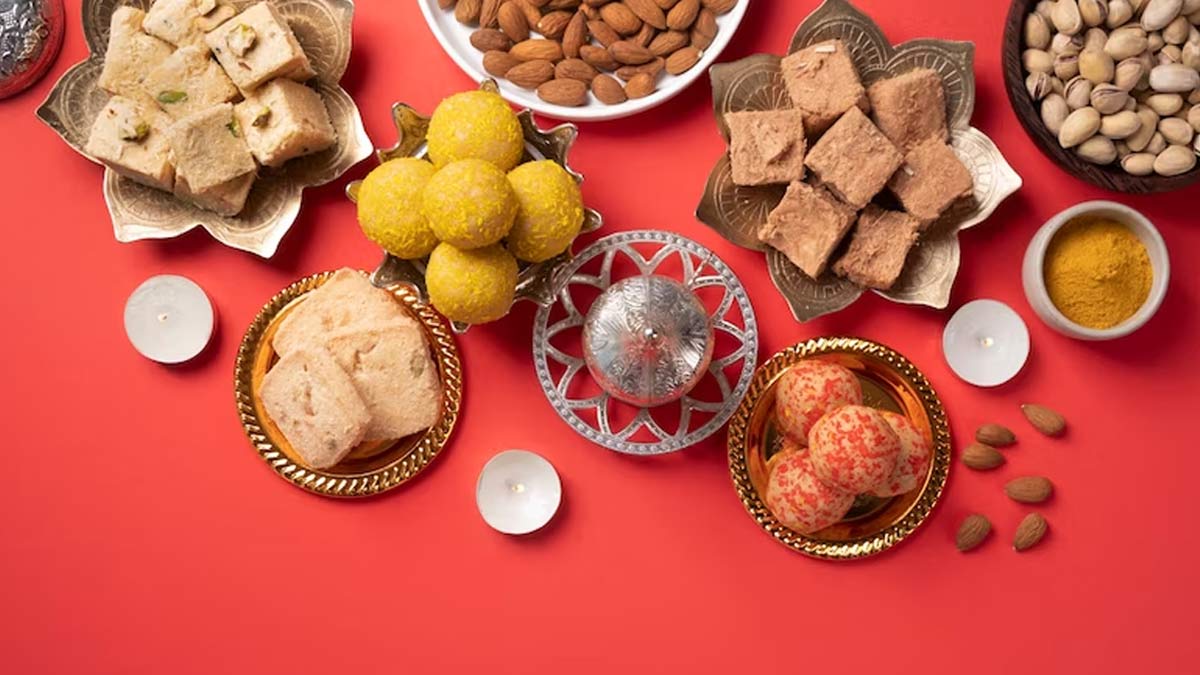
The festive season of Diwali brings celebrations, togetherness, and, of course, an overload of sweets. While indulging in your favourite mithais is part of the fun, sometimes too much sugar can cause a sudden “sugar rush”, leading to energy bursts followed by crashes, dizziness, or jitters. To help you enjoy sweets without the unpleasant effects, dietitian Sakshi Singh shares practical tips to prevent sugar rushes and keep your blood sugar levels steady during the festivities.
Table of Content:-
Expert Advice on Managing Sugar Intake![]()
Dietitian Sakshi Singh explains, “A sugar rush happens when your blood glucose spikes quickly after consuming a large amount of sugar. This causes a burst of energy followed by a sharp drop, which can leave you feeling tired and irritable.” She advises mindful eating as the key to preventing this.
Her tips to maintain balanced blood sugar include:
- Pair sweets with protein or fibre-rich foods such as nuts, fruits, or whole grains to slow sugar absorption
- Avoid eating sweets on an empty stomach; instead, have them after a balanced meal containing fibre and healthy fats
- Stay hydrated by drinking water or buttermilk post-indulgence to aid digestion
- Control portion sizes by enjoying small quantities slowly
- Add physical activity, like a short walk after meals, to help use glucose effectively
Sakshi Singh highlights that these small actions help avoid the rollercoaster of sugar highs and lows.
ALSO READ: Burnt Hand After Viral Diwali Handshake? Here’s How to Heal It Fast
Why Mindful Eating Works During Festivals![]()
Sakshi explains that sugar in sweets causes rapid increases in blood glucose. Eating sweets too fast or in large portions results in spikes, followed by crashes when insulin regulates the sugar. Mindful eating slows consumption and stabilises energy.
- Choose one or two favourite sweets instead of sampling many
- Savour each bite to increase satisfaction and reduce overeating
- Include protein and fats in your meal to blunt sugar absorption
- This way, you maintain a steadier energy level and avoid fatigue and mood swings.
A recent study reported a 40% rise in urban households consuming sweets three or more times monthly, raising concerns over diabetes risk in India during festivals. It noted how higher sugar intake, combined with less physical activity and irregular routines, leads to blood sugar spikes and increases diabetes prevalence. This study reinforces the need for moderation and informed choices during Diwali sweets indulgence.
Additional Simple Tips to Prevent Sugar Rush![]()
- Opt for sweets made with natural sweeteners like jaggery or dates
- Avoid sugary drinks; keep hydrated with water or light herbal teas
- Don’t skip meals to “save” room for sweets, as it causes blood sugar dips and crashes
- Reduce sugar gradually in homemade recipes without sacrificing taste
- Balance festive days by managing total calorie intake and increasing movement
ALSO READ: Delhi Air Quality Turns ‘Severe’; Expert Shares Effects Of Air Pollution On Human Health
Conclusion
Enjoying Diwali sweets can be delightful without the painful sugar rush. Following dietitian Sakshi Singh’s mindful eating tips, like balancing sweets with protein and fibre, controlling portions, staying hydrated, and staying active, helps you celebrate with steady energy and better health. Small changes can make your festive indulgence more enjoyable and gentle on your body.
Also watch this video
How we keep this article up to date:
We work with experts and keep a close eye on the latest in health and wellness. Whenever there is a new research or helpful information, we update our articles with accurate and useful advice.
Current Version
Oct 21, 2025 13:41 IST
Modified By : Vivek KumarOct 21, 2025 13:41 IST
Published By : Vivek Kumar


